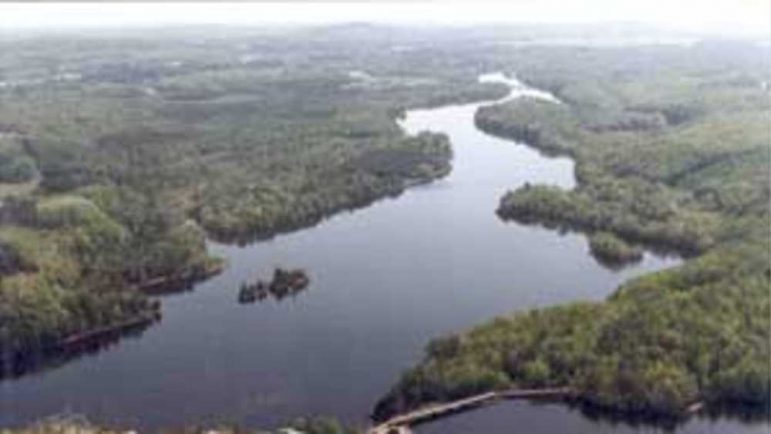By AMELIA COLE
Capital News Service
LANSING — You may be familiar with the concept that people have rights to life, liberty and the pursuit of happiness.
Have you ever considered the rights of a river?
The Menominee Indian Tribe of Wisconsin is asserting that the Menominee River has the right to exist naturally, flourish, evolve, remain unpolluted and carry out its natural ecosystem functions.
The Menominee River, at the border between Michigan’s Upper Peninsula and Wisconsin, is at the center of a controversy over a proposed open-pit sulfide mine known as the Back Forty Project.
Aquila Resources, a Canadian mining company with offices in Stephenson, wants to extract zinc, gold, copper, silver and lead 150 feet away from the river.
The Michigan Department of Environment, Great Lakes and Energy has issued the four major permits required to begin construction. An appeal of one of those permits is pending in a Michigan state court.
Some people worry about environmental threats the mine may pose.
“If that mine gets put in, it will pollute,” said Anahkwet Reiter, an environmental justice advocate and member of the Menominee tribe.
The tribe has always thought of the river as having inherent value and rights, but the threat posed by the mine prompted the tribal legislature to adopt a river rights resolution, Reiter said.
Granting legal personhood to nature – commonly known as the Rights to Nature movement – has gained popularity in recent years as a way to protect natural resources, said Nick Schroeck, an environmental law expert and associate professor at the University of Detroit Mercy.
Sister Pat Siemen, the founder of the Center for Earth Jurisprudence at Barry University School of Law in Orlando, Florida, is a leader in the Rights to Nature movement.
“Humans can stand in as guardians and protectors for the health and well-being of rivers and ecosystems,” she said.
But granting legal rights to nature is controversial.
Schroeck said that when Toledo residents voted last year to adopt a bill of rights for Lake Erie, business groups and agricultural interests protested and argued that a natural resource shouldn’t be treated like a person.
“The response to that is, well, we already do that in the law with corporations,” he said. “We treat corporations as if they have personhood from a legal perspective.”
Because Indigenous communities often have strong historical, cultural and physical ties to the land, they have largely been leading Rights to Nature movement globally, Schroeck said.
And there’s a historical context for them to wage such a fight.
Reiter said oral tradition states that the Menominee tribe originated from the mouth of the Menominee River,
The river is a living thing, Reiter said. “The way we understand it, it has an essence, it has a spirit about it. That river knows our secrets and we know its secrets. We come from it. Our connection runs very, very deep.”
In addition to violating the river’s right to a healthy environment, the proposed mine would disturb prehistoric village sites that are home to the remains of Menominee ancestors, he said.
“What is left of our great nation, archaeologically speaking, is located along that river,” Reiter said.
Aquila Resources counters that its mine wouldn’t harm the environment or important cultural sites.
“I have no direct comment on the resolution itself. However, Aquila remains committed to protecting the natural and cultural resources of the region,” said Mike Welch, the chief operating officer of the Back Forty Project.
The tribe’s river rights resolution is just one step in its fight against the Back Forty Mine. The tribe plans to encourage tribal and county governments in Michigan and Wisconsin to pass similar resolutions. Ultimately, it says it hopes the Michigan and Wisconsin state governments will recognize the rights of the river as well.
That won’t be easy.
Schroeck said it’s unfortunate that many people oppose the Rights to Nature movement because they view natural resources as something to be exploited and put into commerce rather than as ecosystems with their own inherent value.
These conflicting attitudes towards nature contribute to the controversy surrounding the Menominee River.
Reiter said that Aquila Resources and Michigan’s Department of Environment, Great Lakes and Energy view the river as an expendable resource.
“I think they see it through the lens of capitalism,” he said. “We see it as the lifeblood of the earth, of our beautiful Mother Earth.”
Amelia Cole writes for Great Lakes Echo.
